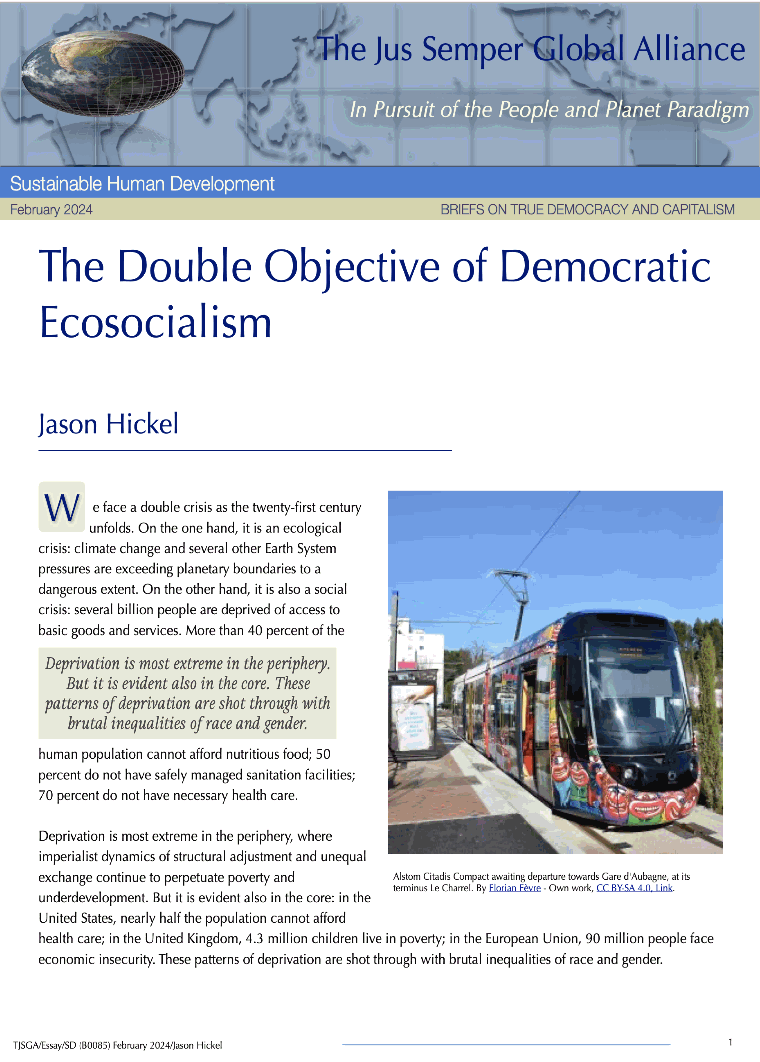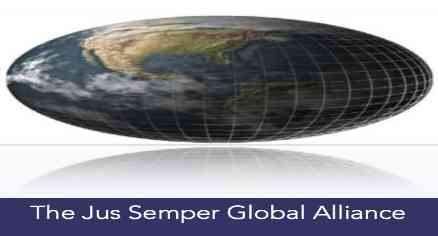Jason Hickel Deprivation is most extreme in the periphery, where imperialist dynamics of structural adjustment and unequal exchange continue to perpetuate poverty andunderdevelopment. But it is evident also in the core: in the United States, nearly half the population cannot afford health care; in the United Kingdom, 4.3 million children live in poverty; in the European Union, 90 million people face economic insecurity. These patterns of deprivation are shot through with brutal inequalities of race and gender. No political program that promises to analyse and resolve the ecological crisis can hope to succeed if it does not also simultaneously—that is, in the same stroke—analyse and resolve the social crisis. Attempting to address one without the other leaves fundamental contradictions entrenched and will ultimately give rise to monsters. Indeed, monsters are already emerging. It is critically important to understand that the dual social-ecological crisis is being driven, ultimately, by the capitalist system of production.
For a full read of this brief, click here or on the picture to download the pdf file.
|

- © The Jus Semper Global Alliance
| Home |  | Resources |  | Democracy Best Practices |  | The Double Objective of Democratic Ecosocialism |


